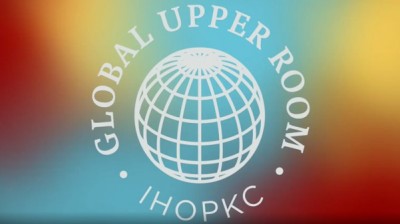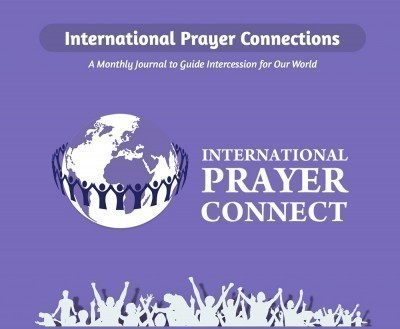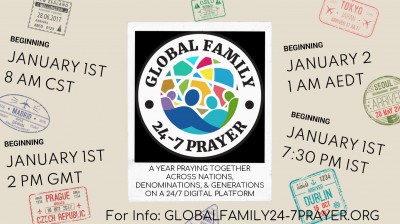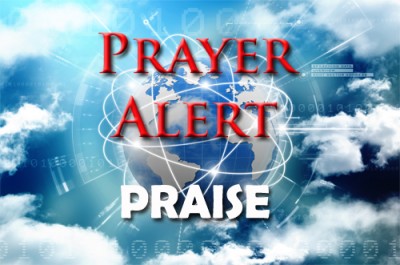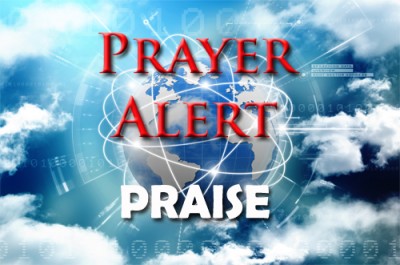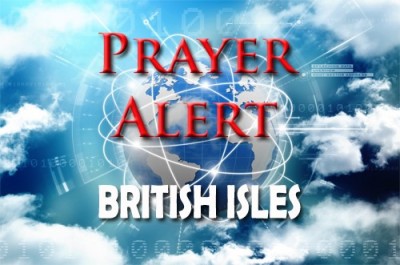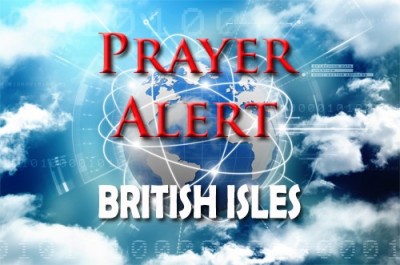Gathering the Church for 2021
Join a “Global Upper Room” event 12/31 all day into the new year as IHOPKC and leaders in the Body of Christ from every time zone across the globe join together to conclude the year and usher in 2021 with a strong shout of praise, thanksgiving, humble confession, prophetic prayer, and bold declaration.
From Oceania across Asia, the Middle East, Europe, and spanning North and South America, we envision 24 hours of non-stop worship and intercession connected by technology in a ceaseless program of coordinated prayer.
At the same time, we are urging thousands of groups to coordinate their own communities for two to six hours on New Year’s Eve leading up to midnight that we may usher in New Year’s Day around the world with our hearts postured in unity, humility, and faith. We want to thank God for His leadership of history and enter the new year with expectation for mighty moves of the Holy Spirit in our day in every nation.
Let us re-enact Acts 1:12–14 unto Act 2 and Acts 4.
From the Chinese church in Taiwan to the intercessions of Herrnhut, Germany, and its Moravian Lampstand, the International House of Prayer in Kansas City wants to serve the Body of Christ with a historic moment of prayer and harvest that spans every time zone.
More info, livestream and sign up HERE
Ahead of the January edition of the monthly IPC Connections email, we would like to bring to your attention three significant prayer initiatives that are happening this next 24 hours – that we would not want you to miss!
The first is a major partnership between many ministries around the world in a Global Family 24/7 Prayer Room, that launches at 16:00HRS Jerusalem time on New Year’s Day.
As we are writing this, the sun is rising in the East and lots of people are praying in the new year as part of the New Year’s Day Sunrise Prayer Relay. It is not too late for many of us to take part!
Many ministries including IPC are joining with our friends at IHOP Kansas for their Global Upper Room which aims to conclude the current year and usher in 2021 with a strong shout of praise, thanksgiving, humble confession, prophetic prayer, and bold declaration.
Details of each of these projects follow below.
We would wish all of our partners in prayer every blessing for the year ahead.
Dr Jason Hubbard – Director
International Prayer Connect
http://www.ipcprayer.org
January 1st 2021 marks the launch of the ‘Global Family’ Online 24/7 Prayer initiative that aims to unite nations, denominations and generations in a year of continuous prayer and worship.
Gifted Prayer leaders and worship teams from every continent will be leading the 168 hourly ‘Zoom’ sessions each week in several languages. The meetings will be accessible to anyone, anywhere with an internet connection.
The project was founded by Dr Jason Hubbard (www.ipcprayer.org) and Jonathan Friz (www.10days.net) in 2020 along with a dedicated, multi-skilled team representing many different ministries and networks from around the world.
Jonathan Friz said "The ability to pray together as the global church in the same space is brand new - for the first time in history we can approximate the sound of that great multitude gathered before the throne from every nation and language, declaring "Salvation belongs to our God, and to the Lamb!""
 "We would invite individuals, groups, Churches, ministries, anyone! - who shares our vision to join us, whether it’s for a short while or for many hours each week, in the presence of God, alongside fellow-believers from across the world. "
"We would invite individuals, groups, Churches, ministries, anyone! - who shares our vision to join us, whether it’s for a short while or for many hours each week, in the presence of God, alongside fellow-believers from across the world. "
Launch Service…
The Global Family 24-7-365 will begin January 1st 2021 at 16:00 Jerusalem time, 8 AM CST, 2 PM GMT. The launch will include a two hour special “church” service. The first full hour will be focused on coming together as a Global Family and praying together. The second hour will be a teaching hour. After the church service ends, regular facilitated hourly sessions will begin.
Praying for the Unreached…
One of the primary focuses of the Global Family will be prayers for the unreached. Jason Hubbard said “We are convinced that the Crux of the Great Commission and the reaching of every person by 2030 in the Go Decade needs to especially focus on the Unreached People Groups. They are the ethne of Matthew 28, of which there are about 5000 such people groups still separated by language and culture with an average of only one believer per thousand. They need cross-cultural efforts integrated with focused, ongoing prayer to see indigenous gospel movements established in them.”
“As the church worldwide continues to work together to mobilize prayer and targeted mission efforts, it will be possible with the Lord’s supernatural help to see bible based, Christ exalting, Spirit-led churches planted in each one of these people groups by 2030! Let’s Go and Count to Zero!”
Prayer Leader Opportunity…
There are 50 or so hourly sessions available to would-be leaders in the weekly schedule as we go to press, and they are steadily being filled. Prayer Leaders who would like to find out more about taking part are invited to visit the Leaders page on the website.
"The Father has a plan to answer Jesus' prayer in John 17,” said Jonathan. “ Prayer meetings like this that bring the family together in the presence of the Holy Spirit are a key part of His plan. When the family comes together to glorify Jesus, the Father loves to pour out His glory on us all. Make no mistake, Jesus gets what He prays for!"
How to join…
To join the Global Family 24-7 Prayer Room, please register HERE. The meetings are all accessed through an online ticketing system, apart from the launch service which will be also be live-streamed.
More at: http://globalfamily24-7prayer.org/
Sunrise Prayer Relay - New Year's Day 2021
Australia Christian prayer leaders invite their brothers and sisters in Christ, prayer groups, prayer networks and churches to join with them all over the world to pray at sunrise on New Year's Day 2021 at a public location such as a hill, lookout or landmark in your city or town.
This year our focus is to proclaim JESUS IS LORD. Over the last six years we have had registrations from 70 different countries including USA, South Africa, Namibia, Pakistan, Japan, United Kingdom, Fiji, Vanuatu, New Zealand, and Australia.
Warwick Marsh a prayer & family advocate in Australia said, “Psalm 5:3 says, ‘In the morning, LORD, you hear my voice; in the morning I lay my requests before you and wait expectantly’.
So, in the morning let us pray for revival and transformation for our respective nations according to 2 Chronicles 7:14. Let us all also pray for a great harvest of souls for the Lord Jesus Christ. In the USA there is a strong need to pray for the integrity of the recently held election and a proper process of investigation for all concerned that the truth will be told. Pray that “what has been whispered in secret will be shouted from the housetops,” because as it says in Proverbs 13:34, “Righteousness exalts a nation, But sin is a reproach to any people”.
Marsh continued, “During this Sunrise Prayer Relay we are circling the globe with prayer, praise and worship and surrendering our lives to Jesus Christ for the glory of God. Paul the apostle says in Philippians 2:10,11. “That at the name of Jesus every knee should bow, of those in heaven, and of those on earth, and of those under the earth, and that every tongue should confess that Jesus Christ is Lord, to the glory of God the Father. Use the prayer resources on the website and social media and register your location at: www.sunriseprayerrelay.com Our prayer is that with your help, this worldwide Prayer and Praise Relay will go viral.”
Pat Steele, a Youth for Christ missionary in Australia, said, “We encourage you to pray the Lord's Prayer together aloud as the sun rises and make a declaration that Jesus Christ is Lord of your life, your family, your region and your nation. At your location we encourage you to include praise and worship, prayers, and scripture readings. We suggest 30 minutes, but you can pray for longer. You could even take communion, shine a torch, or light a candle. What you do for your sunrise celebration is up to you.”
Share photos and videos from your location on social media.
Use the hashtag: #sunriseprayerrelay
Website: www.sunriseprayerelay.com
Facebook: www.facebook.com/sunriseprayerrelay
Instagram: www.instagram.com/sunriseprayerrelay
YouTube: https://youtu.be/dbLpDBXfY50
Contact: Warwick Marsh 61 418 225212
or Pat Steele by email: This email address is being protected from spambots. You need JavaScript enabled to view it.
Christmas shoes for barefoot children
17 Dec 2020A little child - a long walk - a rocky road - no shoes - twice a day - five times a week. This is life for thousands of Indonesian Christian children because their parents cannot afford shoes. The more fortunate children have jepit (meaning pinch sandals because they must be gripped by toes). Not easy walking over rough ground, and not healthy for young growing feet. Christians asked Barnabas to provide proper school shoes for them. A local Christian shoe company is providing shoes at a 67% discount. This Christmas the children, who walk every day for miles in bare feet, will receive a gift of school shoes thanks to many generous donations.
A Christmas gift in Lahore
17 Dec 2020In Pakistan, false accusations of blasphemy are common and often motivated by personal vendettas or religious hatred. Imran was falsely accused of blasphemy and imprisoned for life. On 15 December the Lahore High Court acquitted him and released him, after he had spent over ten years in prison. The development came as a shock to Imran’s family. ‘It is a day of resurrection for us’, Naveed Masih, Imran’s brother, said. ‘God has heard our cry and we are very thankful to Him. It’s a Christmas gift for us.’
Brexit: race against time
17 Dec 2020Stripping away the spin in both the UK and EU, the prospects of a deal feel very slim at present. In the next few weeks everything rests on intense negotiations behind the scenes. The process is unlikely to be straightforward as this is all uncharted territory. Please continue to pray for God to direct every conversation around this challenging situation. Pray for everyone to be creative and able to keep the basis of negotiations on level ground. Political observers say that if they wanted to, the EU and the UK could, in theory, come up with an agreement outside EU law. Meanwhile the UK and USA are in talks over a mini trade deal to reduce tariffs. Pray for the success of post-Brexit deals with Washington. Pray for God to pave the way for excellent future communications between US trade representative Robert Lighthizer and the UK international trade secretary Liz Truss. See
Rash Christmas Covid rules
17 Dec 2020In a joint editorial, two leading medical journals have said the UK's plan to ease Covid rules over Christmas is a ‘rash decision’ that will ‘cost many lives’. They said people might see the lifting of restrictions ‘as permission to drop their guard’. However, Number 10 said it would not review plans to allow household mixing over Christmas. It is only the second time the two publications have written a joint editorial. Pray for people to understand the danger and keep social contact to a minimum over the five days of reduced restrictions.
